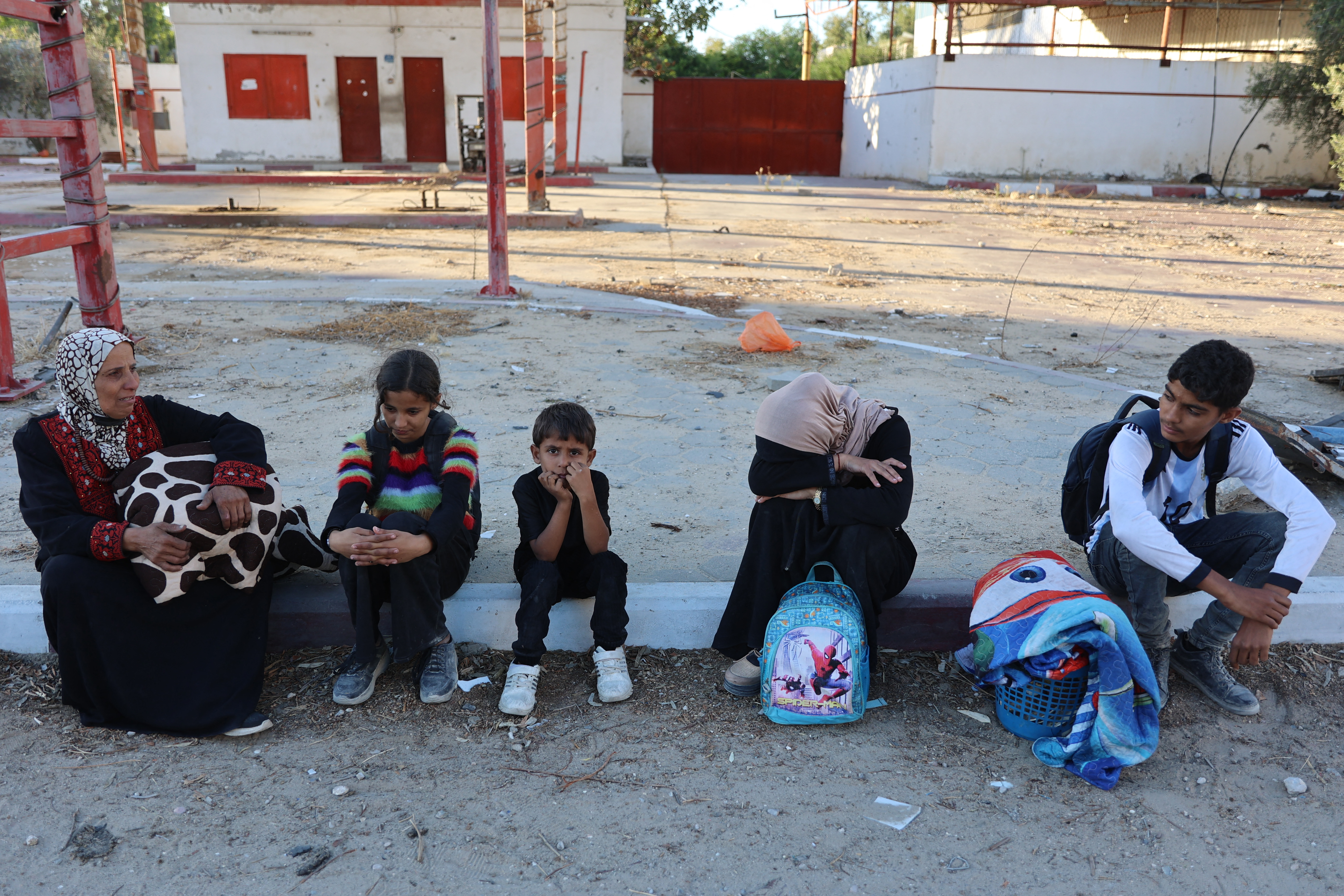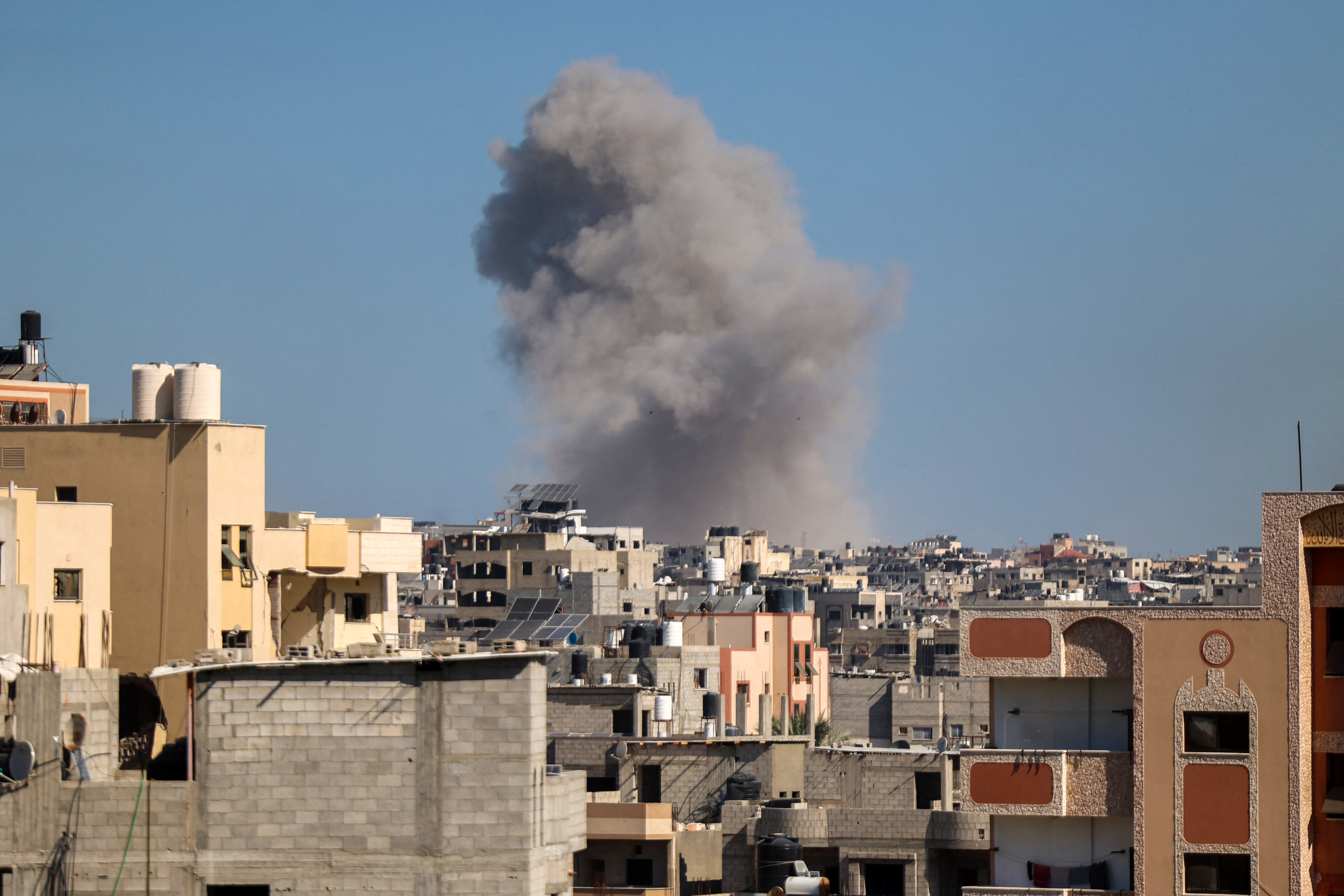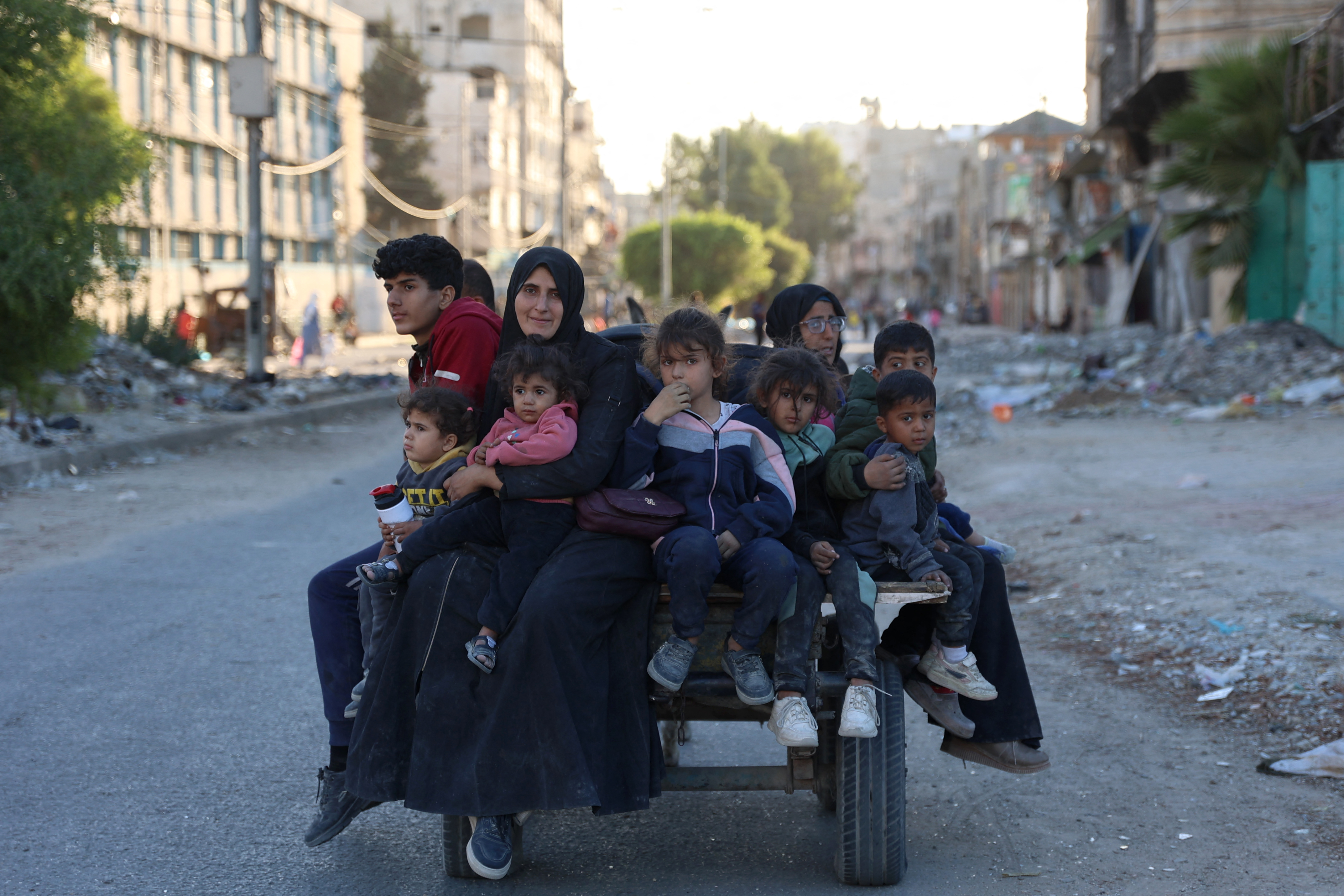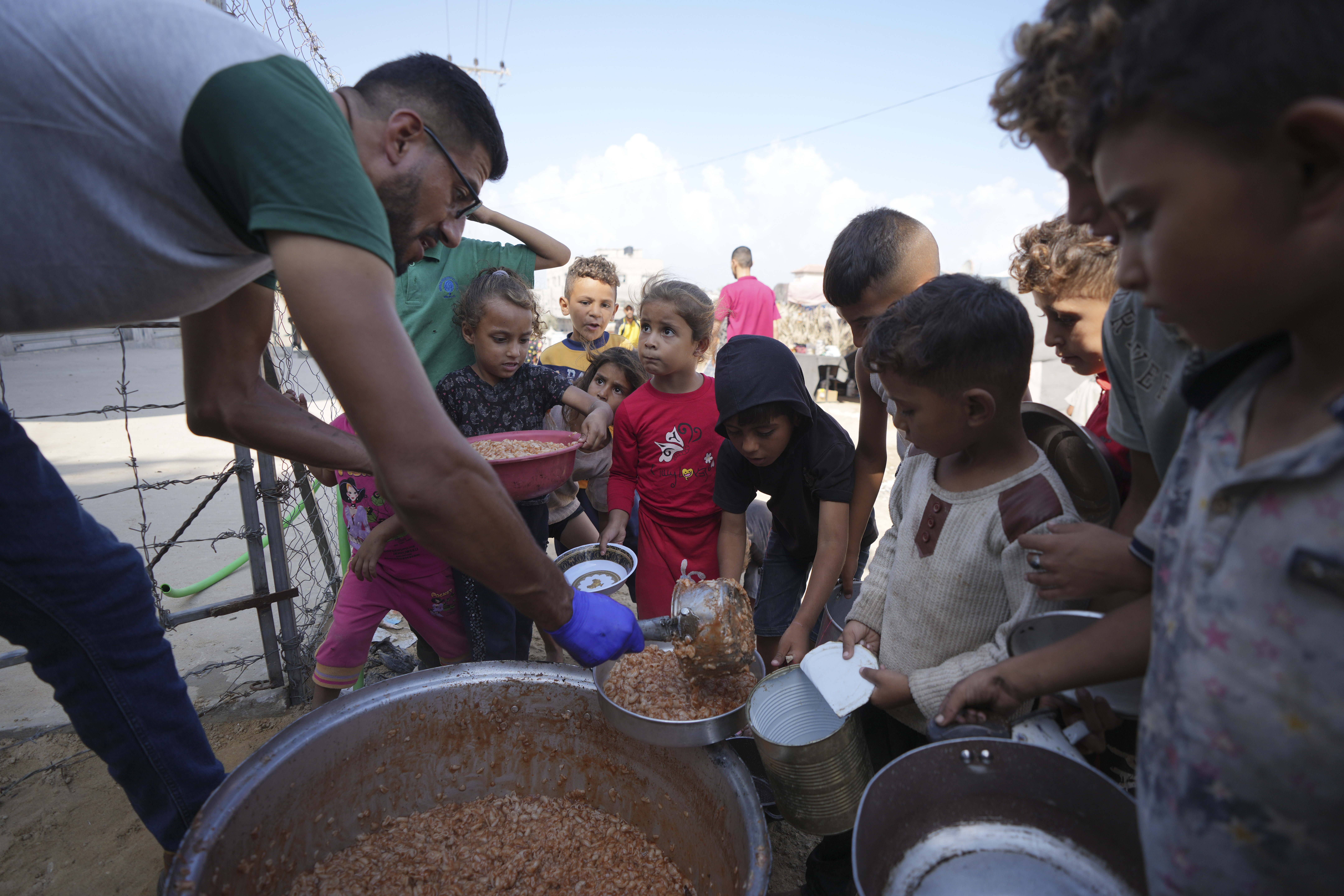Israel may be causing destruction of the population through ‘death or forced displacement'

The UN Human Rights Office expressed concern that Israel may be causing the destruction of the population of north Gaza through “death or forced displacement”, particularly around the cities of Jabalya, Beit Lahiya and Beit Hanoun.
This came as Tel Aviv continued to defy calls that its war objectives have been met following the death of Hamas chief Yahya Sinwar.
The Office of the United Nations High Commissioner for Human Rights said in a press release on Oct 20 that since Oct 6, the Israeli military has taken measures “that make life in north Gaza impossible for Palestinians” while “repeatedly ordering the displacement of the entire governorate”.
It said Israeli authorities had prevented the entry of essential supplies to north Gaza between Oct 1 and 14, worsening the situation at a time fuel and food were already dwindling and with many facing starvation. Though a token amount of aid seemed to have entered the north after Oct 15, this “does not commensurate with the needs of the population”, the press release said.
ALSO READ: Palestinian envoy calls for emergency Arab League meeting over Gaza
“While the Israeli military has demanded that all civilians leave north Gaza, it has continued to relentlessly bomb and attack the area, especially in and around Jabalya Camp. These attacks have made it extremely dangerous for civilians to flee, and the UN Human Rights Office has received reports over the last weeks of Palestinians targeted while fleeing,” it said.
It noted Israeli troops have also destroyed residential buildings and attacked schools serving as shelters, with one strike at a residential block in Beit Lahiya killing at least 87 people on Oct 19.
The Organization of Islamic Cooperation (OIC) has condemned in the strongest terms the heinous massacre committed by the Israeli occupation forces in Beit Lahia in the northern Gaza Strip.
In a statement on Sunday, the OIC said it views this atrocity as a continuation of the many massacres, acts of genocide, and ethnic cleansing perpetrated against the Palestinian people, in flagrant violation of international values, conventions, United Nations resolutions, and relevant orders issued by the International Court of Justice (ICJ).

The organization called upon the UN Security Council and the general international community to hold the Israeli occupying regime accountable for these war crimes and end the policy of impunity, Islamic Republic News Agency reported.
The UN Human Rights Office also reminded Israel to observe provisional measures ordered by the ICJ on Jan 26 and that “as the occupying power”, it must “ensure the provision of food, medical supplies and shelter for the population of Gaza”, also as ordered by the ICJ.
Echoing a similar situation, the UN Interim Force in Lebanon (UNIFIL) reminded the Israeli Defense Forces that breaching the UN position and damaging UN assets was “a flagrant violation of international law and Security Council resolution 1701” after UNIFIL alleged that an IDF bulldozer “deliberately demolished an observation tower and perimeter fence of a UN position in Marwahin”.
Resolution 1701, adopted unanimously by the Security Council in 2006, aims to end hostilities between Israel and Hezbollah and create a buffer zone in Lebanon.
ALSO READ: Israeli army demolishes UNIFIL observation tower, fence in S. Lebanon
“The IDF has repeatedly demanded that UNIFIL vacate its positions along the Blue Line and has deliberately damaged UN positions. Despite the pressure being exerted on the mission and our troop-contributing countries, peacekeepers remain in all positions,” UNIFIL said in a post on its X account. The Blue Line is a border demarcation between Lebanon and Israel published by the United Nations in 2000.
Muhannad Al-Aklouk, permanent representative of Palestine to the League of Arab States Ambassador, requested an emergency meeting, WAFA news agency reported on Oct 20.
In a statement to WAFA, Al-Aklouk called on the Arab League members “to uphold their historical responsibility in addressing these unprecedented Israeli crimes” as he warned that Israel’s atrocities “pose a grave threat, not only to the Palestinian people but to the broader security of the Arab region”.
Jordanian Foreign Minister Ayman Safadi called Israel’s aggression on northern Gaza inhumane and “pure evil and a war crime that humanity should not tolerate”.

“This massacre should be faced with a decisive international action to stop it immediately, including through imposing an arms embargo and effective sanctions. Israel is starving hundreds of thousands of Palestinians, bombing entire neighborhoods out of existence, burning displaced children in tents, and destroying hospitals,” said Safadi.
“It is brutally terrorizing the whole population to push them out of their homeland. The Security Council and all members of the international community should not allow this barbaric crime to continue for one more minute. Failure to stop this massacre is a shame on the whole international community,” he said.
The call for immediate action suggests that Jordan, along with other Arab countries, may push the Arab League to convene and present a unified stance, Gokhan Ereli, Gulf studies coordinator at the Center for Middle Eastern Studies in Turkiye, told China Daily.
He said Jordan’s reference to war crimes could open doors to renewed efforts to bring Israeli leaders to international courts, such as the International Criminal Court. Though they may not yield immediate results, they could have lasting legal and reputational consequences for Israel.
READ MORE: At least 73 Palestinians killed by Israeli bombing in N. Gaza
“Ultimately, the next steps hinge on the extent of international pressure,” Ereli said.
“Jordan’s statement could act as a rallying cry for other Arab nations, particularly within the Arab League, to take a firmer stance against Israel. However, the effectiveness of measures like sanctions or an arms embargo will depend on whether powerful Western nations are willing to shift their policies,” he said.
“If these countries continue to support Israel, Jordan’s calls may have limited impact, but if international pressure grows, it could lead to more significant diplomatic and economic consequences for Israel,” he added.

In Israel, thousands took to the streets on Oct 19 demanding Israeli Prime Minister Benjamin Netanyahu’s government seize the opportunity to reach a cease-fire deal and the release of hostages following confirmation of Sinwar’s death by Khalil Al-Hayya, the head of Hamas in Gaza.
Oded, a demonstrator interviewed by the Middle East Eye, a UK-based news website, noted “the goals of the war have been achieved” and the next stage should be a “political stage” because “a war that has no political component has no value”.


